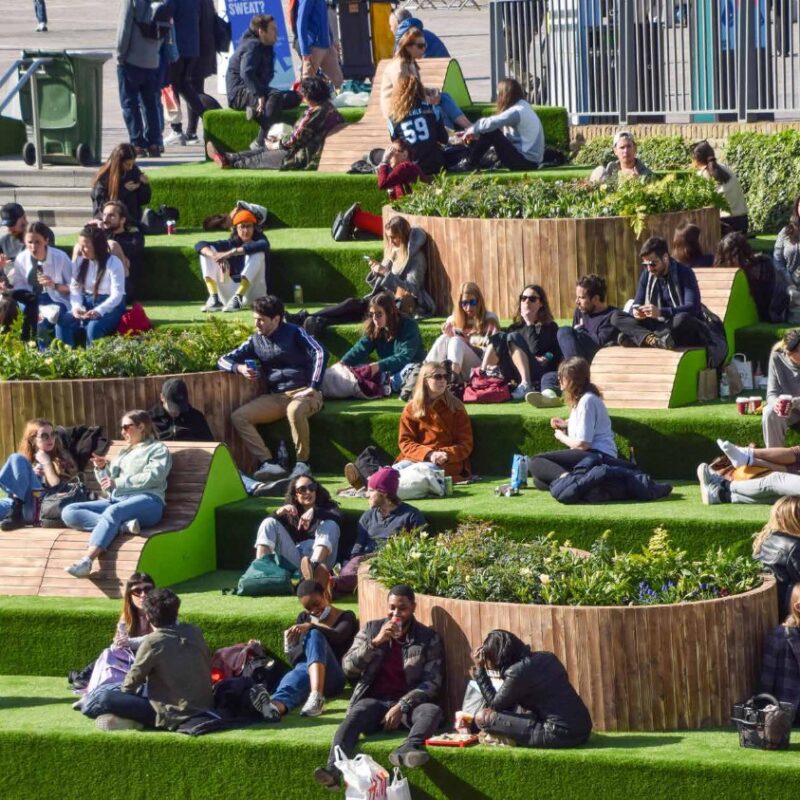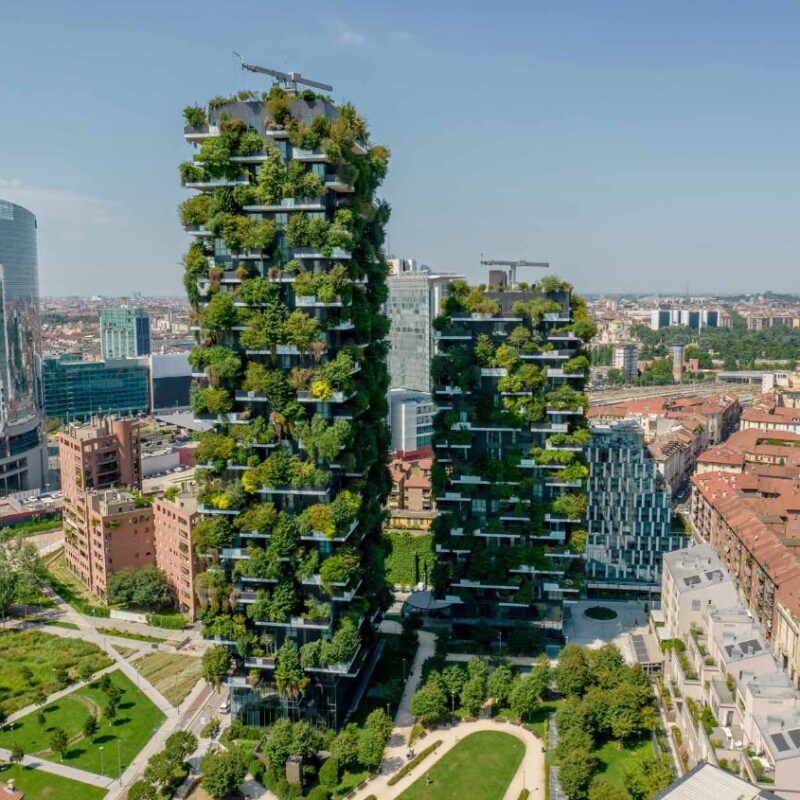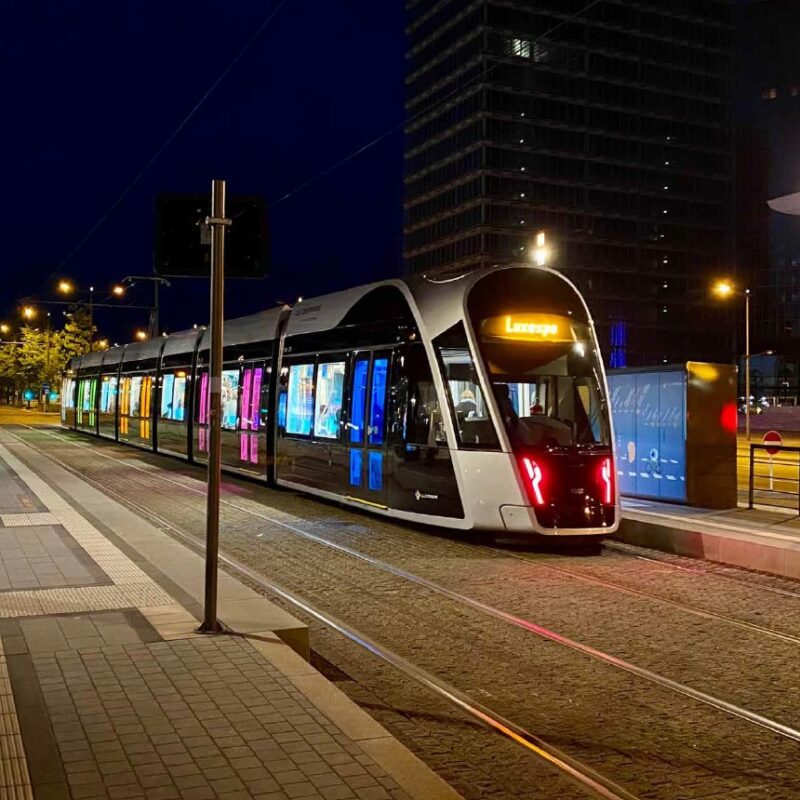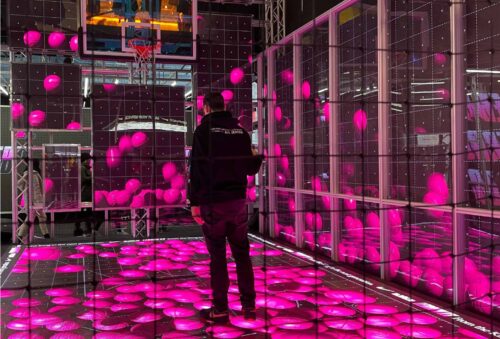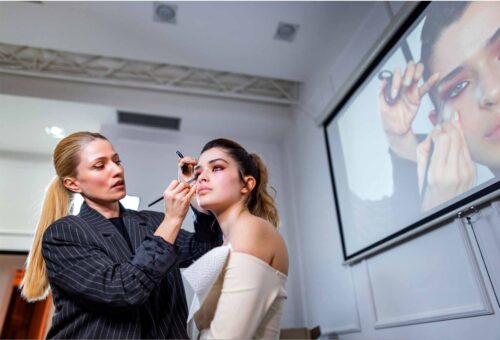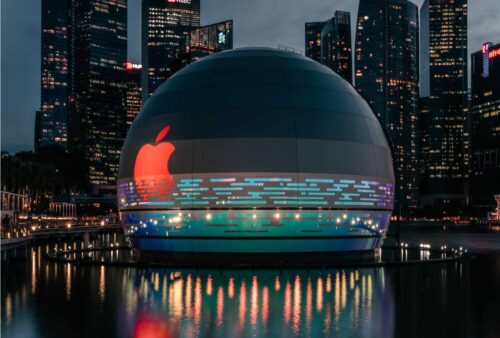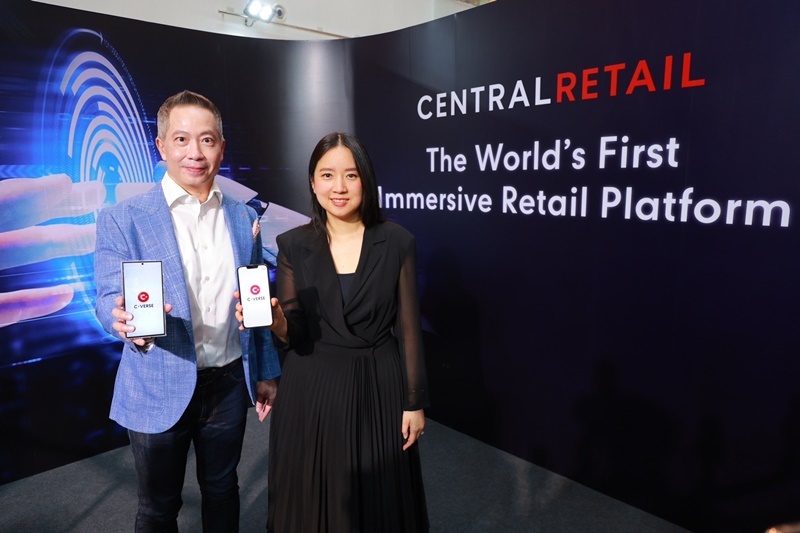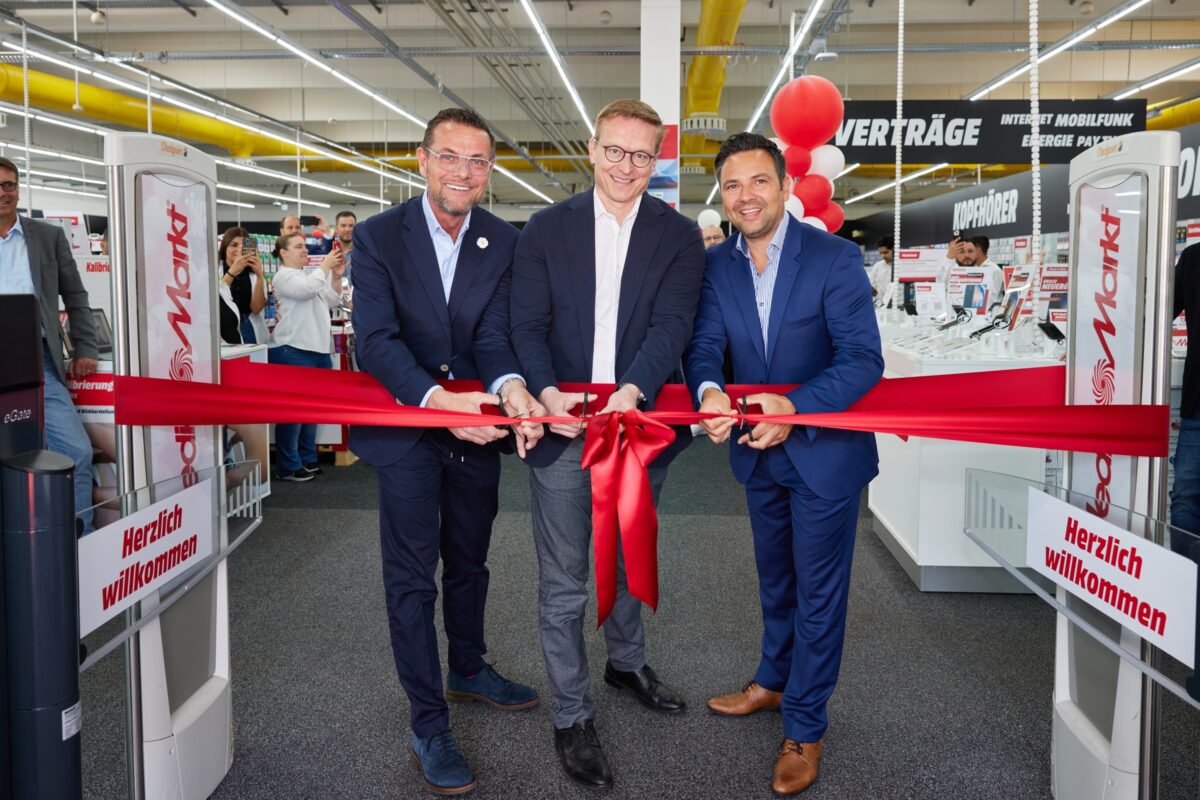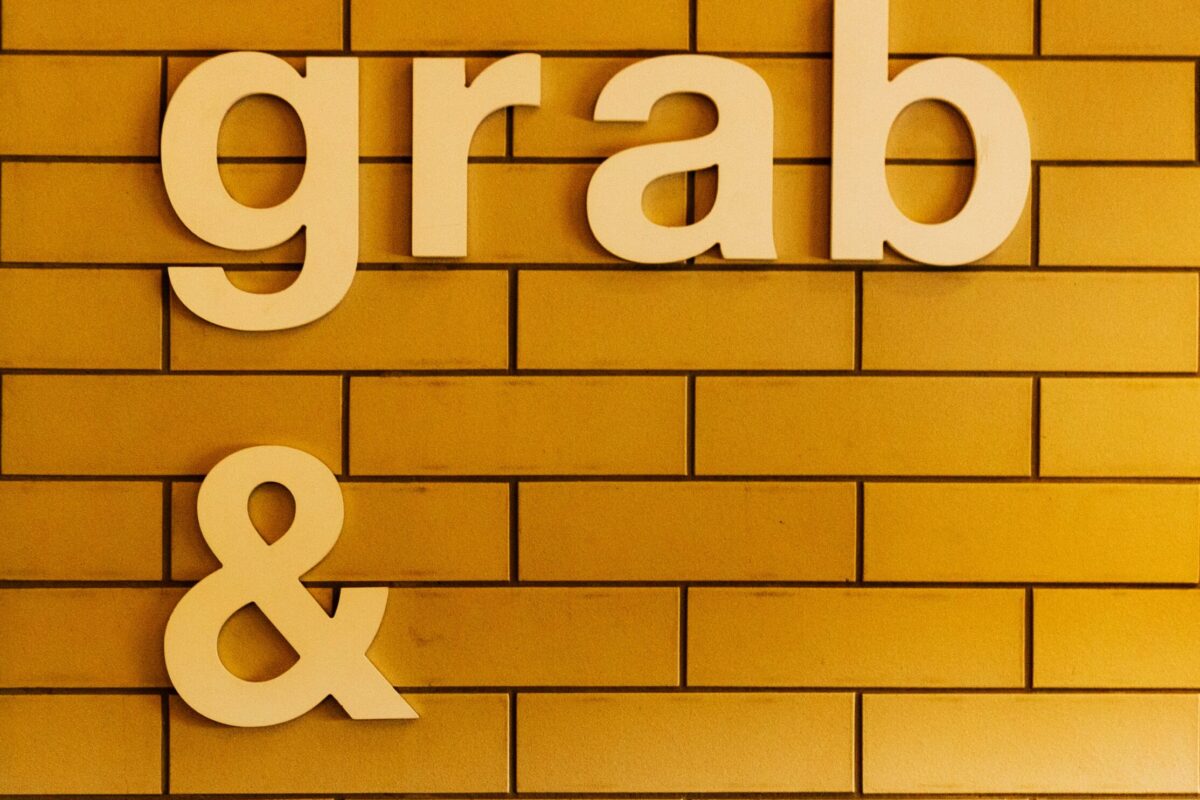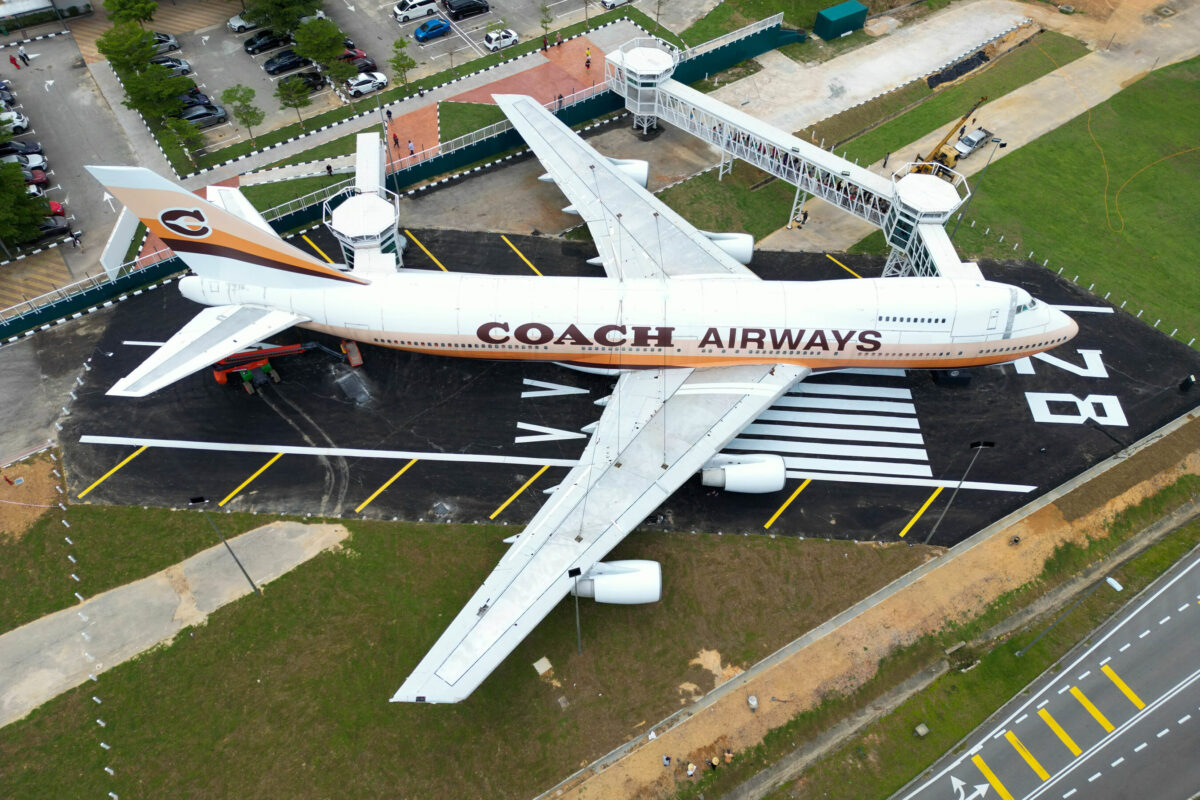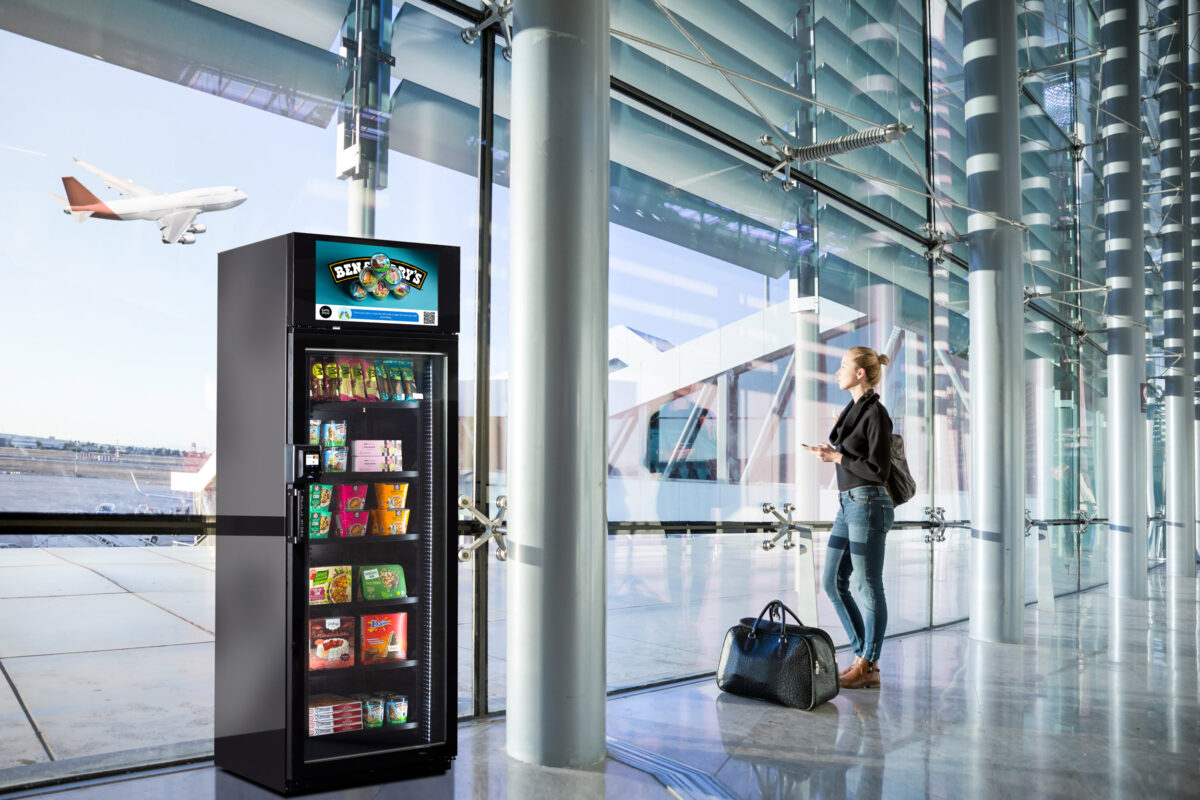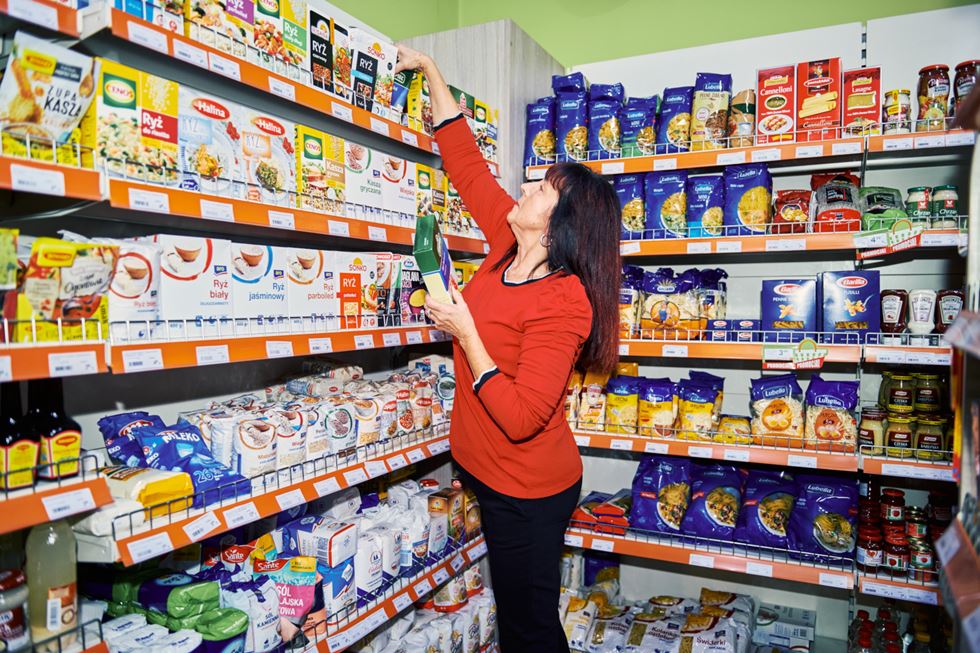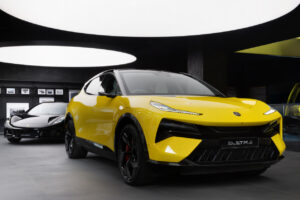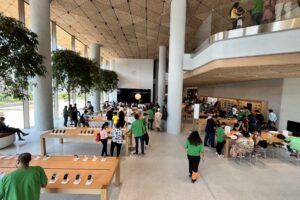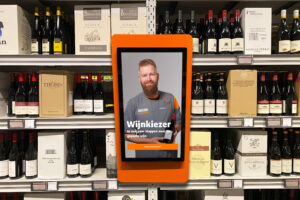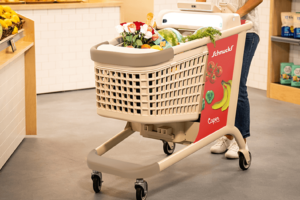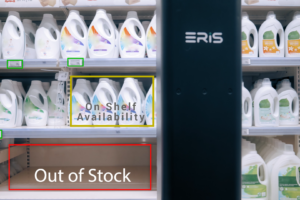Results of the Future Urban Lab at EuroShop 2023
For retail as well as for our coexistence in cities, the following applies: Our demands and habits are changing. In addition, there is an accelerated change in areas such as digitalization, climate and infrastructure. It is therefore particularly exciting to find answers to the question: What constitutes a livable, future-oriented city center for us?
The design of town centers plays a significant role in quality of life. The question of the attractiveness of a city center concerns various areas; many models and ideas are conceivable and worthy of discussion.
City, retail, EuroShop – a symbiosis
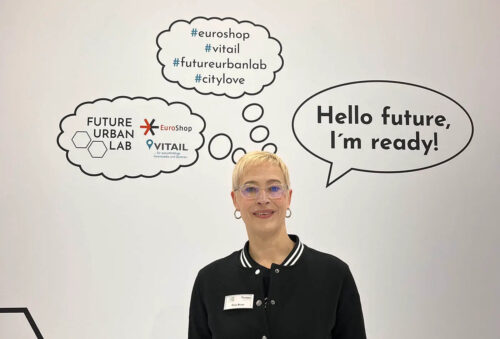
Nina Bauer © Vitail GmbH
The retail trade, with its shopping, service and gastronomy offers, plays a central role. This is why Elke Moebius, Director of EuroShop at Messe Düsseldorf, warmly welcomed VITAIL GmbH when they approached her with the idea for a special area on the theme of “Designing the City Center”. “For retailers, the attractiveness and liveliness of a town center is of utmost importance. And in turn, a great retail offering can help make a town more attractive. From these points of view, placing the Future Urban Lab at EuroShop 2023 was an ideal complement to all the topics presented and discussed at our trade show,” Moebius explains the relevance of this special.
Nina Bauer, Managing Director of VITAIL GmbH, agrees: “Retail and the city center are symbiotically linked and can positively influence each other.” She is pleased that Messe Düsseldorf, together with VITAIL, wants to play an active role in shaping the future of this important area for living and experiencing.
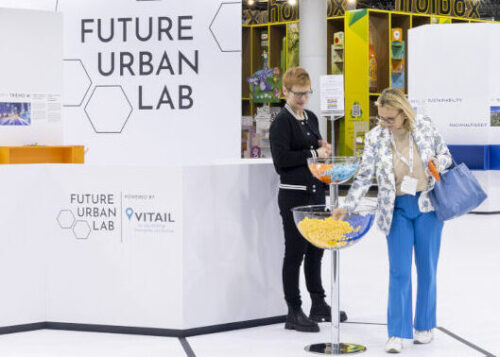
© Andreas Wiese/Messe Düsseldorf
What is the Future Urban Lab?
What emerged from this was a special area – the Future Urban Lab – where three trends were presented on each of five overarching topics relevant to urban development. Visitors to EuroShop were able to find out more, ask questions, discuss and finally vote themselves by placing Lego bricks onto kiosk tables of these 15 trends presented on the stand. What did they consider to be the most important when it comes to shaping a livable city in the coming years and decades?
In total, more than 10,000 Lego bricks were placed by 2011 participants. The survey was very popular, explained Nina Bauer, and the organizers were very pleased with the level of visitor interest.
City center of tomorrow: the trends and results of the vote
The 15 trends are distributed among the following five topics:
- Spatial Quality
- Shopping Experience
- Digitization
- Mobility
- Sustainability
The first three places were won by the trends
- Sustainability: “Re-Naturalization of Concrete Deserts“
- Spatial Quality: “The City Center as an Extended Living Room“
- Sustainability: “The Sponge City Principle for a Natural Water Cycle in City Planning “
All three topics in the area of sustainability (“Re-Naturalization of Concrete Deserts” (1st place), “The Sponge City Principle for a Natural Water Cycle in City Planning” (3rd place) and “The 15-Minute City – Reducing Car Traffic through Short Distances” (8th place)) landed high in the voting. People probably see a great need for action here, and the topic has naturally also received a lot of media and political attention in recent years.
The three trends relating to the shopping experience are roughly in the middle of the field: “Customer Proximity through Product Experience and Personalization” came in at No. 5, “Customer Loyalty through Unique Services” at No. 9 and “Reimagining Traditional Stores through Unusual Store Concepts” landed one place behind at No. 10.
Free local public transport (4th place) and the expansion of the network of cycle paths (7th place) in the area of mobility also seem to be important to people. In the trends surrounding digitization, only “Digitally Supported Traffic Management in City Centers” makes it to the front (6th place), which also relates to mobility. Together with other sustainability topics, the traffic turnaround has also been the subject of much public discussion recently. “Virtual Shopping and Theme Tours with Augmented Reality” on the other hand, land in 12th place and seem to be less relevant for urban development for many.
Looking to the future: exchange, cooperation and innovation
According to Nina Bauer, many participants agreed that the “visitor-centered city center” should be brought back into focus. They were also pleased to be asked for their opinion on this topic, as it directly affects them.
Like the visitors to EuroShop, the participants came from many different countries and continents. And this international exchange is valuable, because innovative concepts are already being tested in many communities around the world. People from the Netherlands or Denmark can confirm the effect of bicycle-friendly urban planning. Luxembourg is the first country in Europe to allow passengers to use buses and trains for free. And in Germany, communities with seasonal events attract many international visitors.
Exchanging ideas, discussing concepts and learning from each other – this motto fits both events: the Future Urban Lab and the EuroShop trade show. That’s why Elke Moebius can very well imagine a collaboration for the next event, EuroShop 2026. By then, there will certainly be new trends to discuss. We are looking forward to it!
The 15 trends in detail and the complete results can be found on the Future Urban Lab page (in German and English): https://vitail.de/events/futureurbanlab/





